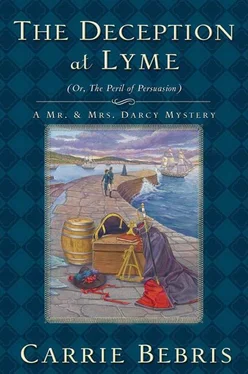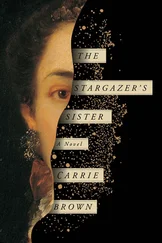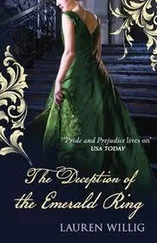They stopped as he said this. They had reached Granny’s Teeth.
“She is hopeful on that point,” Elizabeth told him. “I do not think she will ever try these steps—good heavens, I would not attempt them myself—but a less hazardous set might be possible for her to negotiate by herself one day. She said the sea has improved her health remarkably.”
“It seems Mrs. Smith says a great many things whenever you are together. She is a wellspring of information about herself and everybody she has ever known.”
“I myself was a little taken aback by how much she divulged to someone with whom she is only recently acquainted,” Elizabeth said, “but I believe her health has so circumscribed her society that she has few people to talk to, and little news of herself to talk about. I think, too, that the kindness your sister and I showed her upon our first meeting accelerated the degree of intimacy she perceives between us.”
“Well, she has certainly painted unflattering portraits of both Mr. Elliot and Mrs. Clay.”
“Their own actions did that. I confess, I have lost much of the sympathy I had for Mrs. Clay, and at this point might not go out of my way to explore the circumstances of her death any further were it merely a matter of justice for her. We could simply share our suspicions with the coroner and walk away with a clear conscience. But the more I learn about Mr. Elliot, the more I fear for the safety of Alfred and Mrs. Smith, and even of the Wentworths now that they have taken both of them into their home. Too, the fact that Mr. Elliot was frequently aboard the Magna Carta at the time your cousin served on it makes him a figure about whom we ought to learn all we can.”
“I concur,” Darcy said. “In fact, I feel even more strongly about probing his connexion to the Magna Carta . The gold pendants were found in a sugar cask—one of those, I would wager, that Gerard wrote came from Mr. Smith’s plantation. In the absence of Mr. Smith, we are left with Mr. Elliot as the only person at hand who might lend insight into how the artifacts could have come to be there—if we can pry the intelligence out of him without his realizing it.”
“He also would have been present during the battle in which Lieutenant Fitzwilliam died—though he would have observed it from the Montego, if he observed it at all and did not take refuge in his cabin throughout the action.”
“Unless he was on the Magna Carta when it occurred. Gerard wrote that Captain Tourner was entertaining Mr. Smith when Gerard brought the figurines to Lieutenant St. Clair’s attention, and St. Clair told me there were passengers aboard during the melee. Perhaps Mr. Smith and his companions could not safely return to the Montego before the Magna Carta became engaged. The crew would have been too busy preparing for battle to transport them back to the merchant ship.”
Darcy’s reference to Mr. Smith’s “companions” prompted another thought. “Your cousin wrote that the captain regularly entertained three passengers from the Montego, but named only Mr. Smith. I believe we can safely assume Mr. Elliot was the second, and the one who made a point of his status as a future baronet—that sounds just like him. I wonder who the third passenger was.”
“That is a question I would rather not pose directly to Mr. Elliot if I can help it. Perhaps Mrs. Smith knows.”
“If she does not, Lieutenant St. Clair would.”
“I hesitate to ask him, as well. I do not want to alert either of them to our suspicions. Both Lieutenant St. Clair and Mr. Elliot seem to have a considerable number of dead people in their past, though in St. Clair’s case it is a hazard of his profession.”
Elizabeth looked past Darcy’s shoulder, toward the section of the Cobb they had just walked. “Perhaps it is not his profession, but the company he keeps.”
About five-and-twenty yards away, near the wooden doors of the gin shop, were two men: Lieutenant St. Clair and Mr. Elliot. They stood against the wall, so deep in conversation that they took no notice of Elizabeth and Darcy.
“That is an intriguing tête-à-tête,” Elizabeth said. “What do you suppose they are discussing?”
Darcy studied them a moment, then took her hand. “Do not say a word.” His voice was so low against the rhythm of the tide that Elizabeth barely made out his instruction. He led her away from the water’s edge, angling toward the wall until they were flush against it, closer to Mr. Elliot and Lieutenant St. Clair but still a good sixty feet from where they continued to converse. Darcy leaned against the wall, his back to the gentlemen, and raised a finger to his lips.
“… appreciate your interest, but you are making this application too late. We are settled on Tourner.”
Elizabeth regarded Darcy in disbelief. The conversation was quite audible, yet there was nobody nearby. In fact, the voices sounded like Mr. Elliot and Lieutenant St. Clair, who had not moved from their distant position. Is that…? she mouthed.
Darcy nodded.
How? she wanted to ask, but St. Clair was still speaking.
“… hoped I might persuade you. I have spent nearly my whole career navigating the trade winds and currents of the West Indian routes.”
“Tourner has experience as a captain that you cannot match.”
“Tourner lacks boldness. He should have retired even before the war ended. Your ship needs a master who can protect its cargo from those who would seize it. I have commanded prize vessels into port, led boarding and landing parties, directed battles when the captain has been incapacitated. Whether a situation demands decisiveness, diplomacy, or discretion, I will answer. You saw for yourself on the Magna Carta how expediently I can dispatch a problem.”
“I did, and I thank you again for your deft handling of it, though you must admit that Tourner helped. However, your previous service to me does not change the fact that in the matter of engaging a master for the Black Cormorant, I have my partner’s wishes to consider, and Tourner is his choice. I am sorry.” Mr. Elliot began walking, headed toward Elizabeth and Darcy.
St. Clair fell into step beside him. “Perhaps I could meet with your partner? Allow me an opportunity to convince him of my fitness.”
“Such a meeting is not possible.”
Apprehension took hold of Elizabeth as the pair ambled closer. She and Darcy ought to move, so as not to be caught eavesdropping on them. But then she realized the two men had no idea their conversation could be overheard from such a distance. Amazingly, as the distance closed, she and Darcy were yet able to hear their discussion.
“I do not question that you are a highly capable officer,” Mr. Elliot said. “Were we not already decided on Tourner, we would certainly consider you. I also sympathize with your present lack of employment. I suggest you talk to Captain Tourner. Though he takes direction from me, this will be his ship and his crew. He knows your abilities; perhaps he will want you for his mate.”
“Then I definitely shall take up the matter with him. In fact, I…” The sound of St. Clair’s voice died.
Elizabeth met Darcy’s gaze. “They are drawing close,” she murmured.
Darcy nodded. “It is indeed a fine day,” he said in a perfectly ordinary volume as he moved away from the wall and turned as if to go. “So fine, in fact, that I am reluctant to return to the cottage, but I suppose— Oh, hello.” He greeted Mr. Elliot and Lieutenant St. Clair as they approached.
“We were just saying that very thing, were we not, Lieutenant?” Mr. Elliot’s words came smoothly, but the ease of his manner did not quite reach his eyes. “I hope the weather holds through the week. I hear a new ship is to be launched.”
Читать дальше












